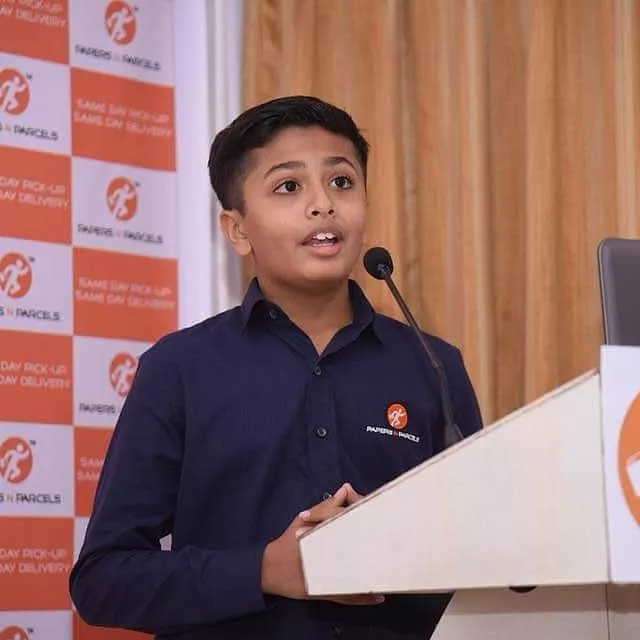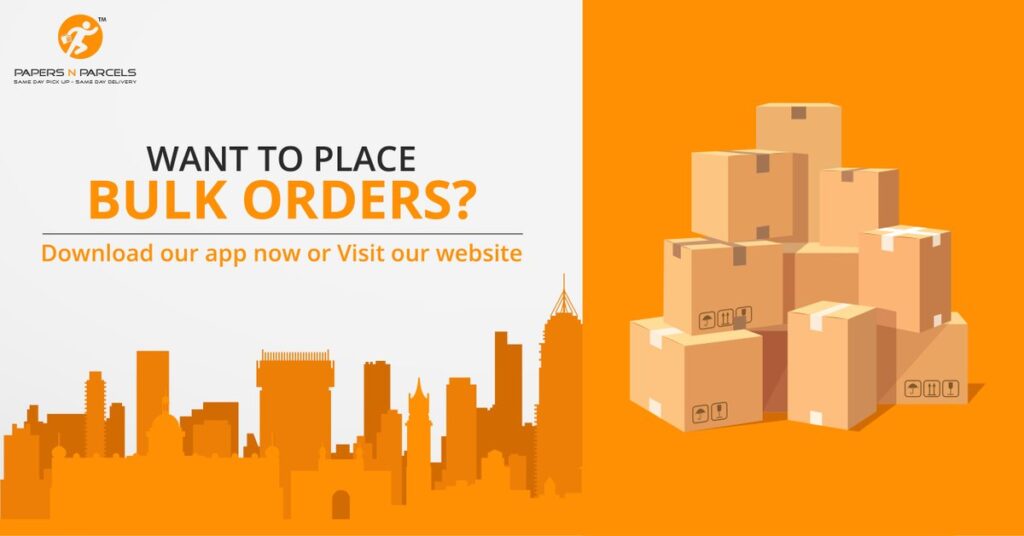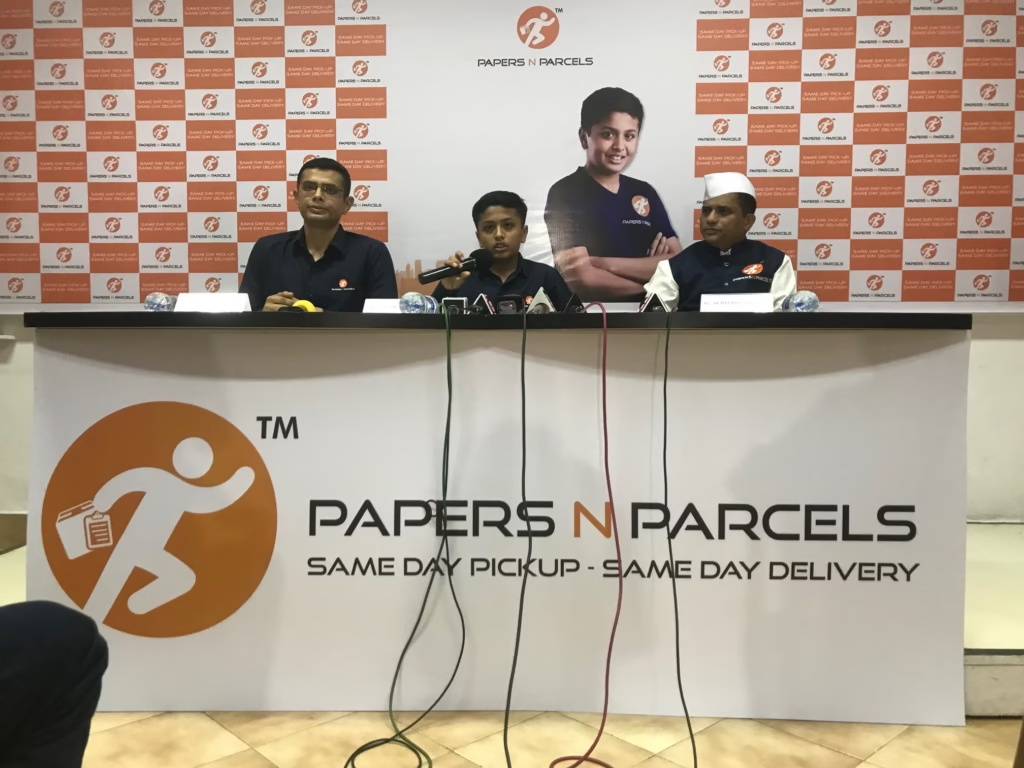In a world often as if chained to the slow, constant crawl of more mature industries and practices, the emergence of a young industry disruptor can bring roles of opportunity and a fresh, strong surge of dynamism. Among them is Tilak Mehta, the Parsi founder of Papers N Parcels: a fire-cracker entrepreneurial dynamo. So his story isn’t just one of building a lucrative, Asian Tigers Express logistics company, but a story of discovering an intersection with the courage of a kid’s dream, intangible spirit, and the bolstering faith that transforms a visionary idea into a tangible reality that continues to enrich thousands.
The first time I heard the story of Tilak Mehta was in a glowing, inspiring, TED story-esque, local news piece that painted a vivid, Technicolor picture of a young, pre-teen entrepreneur, tired of waiting days or weeks for documents and other small packages to be delivered in the bustling metropolis that is Mumbai. Instead of shrugging off this annoyance, he saw an opening, a gap waiting to be filled. This wasn’t a veteran business leader with decades of industry expertise, it was a young person with a keen vision and a passionate drive for a better solution.

Mumbai, the city that never sleeps, is aptly so, a city always in motion. Its arteries are crisscrossed with chronic traffic congestion, making those short-distance last-mile deliveries time-consuming and sanity-draining endeavors. We can expect that for businesses and residents of every city in our country, the demand for speedy, efficient, and reliable intra-city logistics will only increase. This was exactly the problem that Tilak — then just 13 years old himself — experienced firsthand when trying to transport books and notes from one side of the city to his fellow students.
Instead of complaining that there isn’t a one-stop-shop innovation continuum, Tilak’s childlike creativity went to work to create a solution. He pictured such a private network being able to leverage the city’s massive suburban rail network, the very lifeline that has seen Mumbai through various crises, to unlock rapid, ultra-cheap deliveries. This wasn’t just a theoretical notion. This was a challenge that struck close to home in his every day and resulted in a profound feeling of upset and a sincere desire to change the game and do better.
What’s remarkable about Tilak’s story, actually, is not the outcome at all but rather the actions he voluntarily took to achieve it. He didn’t merely think big, he acted big. To start, with his concept in hand, he first pitched to his father, a successful entrepreneur himself. What he likely could recognize, the opportunity among all opportunity, was the land that his son’s remark tapped into—and the direction his son’s vision had obviously set. While only a few years older than Tilak, he became Tilak’s first mentor and champion, providing him with the early guidance and resources to help shape this nascent idea into a more developed business plan.
The underlying concept that powered Papers N Parcels was deceptively simple, yet extremely powerful — leverage Mumbai’s enormous local train system to accomplish the first and last mile of delivery. This would send all of that congested roadway car traffic to a significantly less congested freight rail corridor, leading to faster travel times and lower operating costs. The enterprise would operate with a network of specially trained “delivery partners” who’d pick up a package from its origin, take it to a local railroad depot, and then the delivery partner would take it where it needed to go within a reasonable distance from the destination train station.
That model was an absolutely genius move that took an already-used infrastructure and turned daily commutes, for millions of us, into an innovative delivery system. It was a wonderful story of outside-the-box thinking, of seeing the upside of something that had already been developed and was being used just the opposite of how they could have used it.
The challenges really were huge in the early days. Finally, communities and freight interests must keep in mind that fostering a logistics network is a collaborative and at times, fragile, undertaking that requires patience, coordination, and most certainly, trust. Getting consumers to entrust their packages to a mostly unknown startup would have been a major hurdle. Tilak’s passion and the seductive reasoning of his business model likely helped to overcome this initial reluctance quite a bit.

So, as you might expect, the first few months of Papers N Parcels would’ve been an exciting but intimidating whirlwind of new experiences. Setting up the operational processes, recruiting their delivery partners, establishing a system with which to track and manage the parcels, garnering a reputation for reliability – all of these would have been Herculean tasks, even for the mature. This is precisely where the mentorship and joint experience of his father and the first club he took over, return, would have been invaluable during this developing period.
Yet what’s truly motivating is Tilak’s willingness — and apparent capacity — to articulate this vision in a way that galvanizes consensus and support. He was more than just another kid with an idea. He was a 23-year-old entrepreneur who truly identified the pain point he was solving and had a crystal clear, very articulate solution. This level of clarity and conviction went a long way toward establishing trust and credibility with their earliest investors and partner organizations.
The success of Papers N Parcels is an encouraging indicator of the sustainability of its central idea. Using the speed and efficiency of Mumbai’s local trains, the company has been able to provide a much quicker and even more affordable delivery option than regular courier companies, particularly when it comes to delivering within the city. Without a doubt, this has been the biggest driver for its growth and adoption.
The company’s laser-like focus on small parcels + small documents found a big-time white space. Where other larger, more corporate logistics companies tended to focus on the heavy-duty bulk shipments that made them quick returns on investments, Papers N Parcels found their niche in serving the small, everyday delivery needs of regular people and small businesses. By narrowing their focus with this approach, they were able to find a significant share within a smaller, very clearly segmented, portion of the overall market.
Tilak’s journey is yet another inspiring example of the wealth to be found in observation and empathy—not just in the world at large, but in entrepreneurship too. He found this problem not via market research reports or analysis of complex data sets but through his own lived experience. This direct immersion with the pain point helped him craft a solution that was genuinely focused on the user.
So while this type of media attention that Tilak and Papers N Parcels received early on is not the be-all-end-all, it certainly helped in creating brand awareness and bolstering credibility. It was a great story of a little boy shaking up the beleaguered logistics industry that had people all across the country captivated. This favorable media attention contributed to an atmosphere of trust and increased interest from customers and potential partners.

Papers N Parcels’ long-term success will depend on its efficiency, reliability, and scalability. The secret sauce to building a sustainable third-party logistics business lies in having strong underlying processes, a disciplined network of delivery partners, and a laser focus on customer experience. Given that the company has since grown and continued to attract investment, one can assume that Tilak and his team have been able to lay down an impressive foundation.
Tilak’s story is a reminder of parental encouragement to nurture the next wave of entrepreneurial genius. His father’s faith in his son’s vision, along with his readiness to offer mentorship and material support, was fundamental during the formative years. This serves to underscore the important part that families and communities can have in helping develop the entrepreneurial spirit in young people.
What’s most inspiring is that Tilak didn’t allow his youth to be an excuse. He owned his outlier status and used his age, energy, and enthusiasm to take the community where he wanted their vision to go. He’s a deeply influential role model for the future generation of entrepreneurs, showing you’re never too young to dream big and that even the biggest obstacles can be circumnavigated with innovation and grit.
Papers N Parcels has most certainly encountered its own hiccups and hurdles, Constructing a new business is one of life’s few certainties, and figuring out Mumbai’s complicated logistics would have certainly been a litany of fragile operational and logistical challenges. Tilak’s talent for weathering all of these storms while building and scaling his business to fantastic success is a direct reflection of his grit and leadership.
As Papers N Parcels grows and develops, I’m curious to see how it’ll address the ever-shifting world of logistics and e-commerce. The increase in e-commerce shopping has created a strong demand for last-mile delivery solutions, and businesses like the all-delivery Papers N Parcels who know how to do it right will be able to take advantage of this high potential market.
Tilak Mehta’s story is not only a remarkable business success story, it’s a deeply human story about the power of observation, the courage to act on an idea, and the life-changing potential of youthful ambition. Instead, he viewed an unexpected problem not as an insurmountable obstacle but as a challenge to develop a much better solution. His journey from hobbyist to innovator is a great testament that innovation knows no age or experience.
He didn’t wait for the “right moment” or the “right credentials.” He identified a need and, with the encouragement and backing of his family, he started building an effort to address it. This forward-looking approach and his complete determination to see his vision come true are the biggest lessons from his encouraging tale.
Tilak Mehta’s influence goes even further than the logistics field. Not just that, he has become a much sought-after symbol of the Indian youth entrepreneurial movement, encouraging millions (to say the least) of other young Indians to look for problems in their ambit and dream they can find solutions. His story was proof that you don’t need to be young to be an innovator—that the simplest of ideas when done well, can change the world.
Also check:- With Sebi’s approval, Groww parent Billion brains files confidential IPO papers
The story of Papers N Parcels serves as a reminder that often, the most creative solutions are developed by those who feel the challenge directly and aren’t beholden to the status quo of an industry. Tilak Mehta, the kid who just wanted to get his homework delivered a bit quicker, ended up delivering a revolution in intra-city logistics, showing us that oftentimes the youngest among us possess the most impactful ideas and the zeal to bring them to fruition. His journey is still a wellspring of inspiration, encouraging us to look anew at the world around us and never discount the potential of a simple, well-executed idea, one rooted, in particular, in a deep-seated desire to improve that which already exists. The untold stories of his entrepreneurial journey are just beginning, and the world waits with bated breath as this young visionary takes bold steps to revolutionize the logistics industry, one package at a time.

